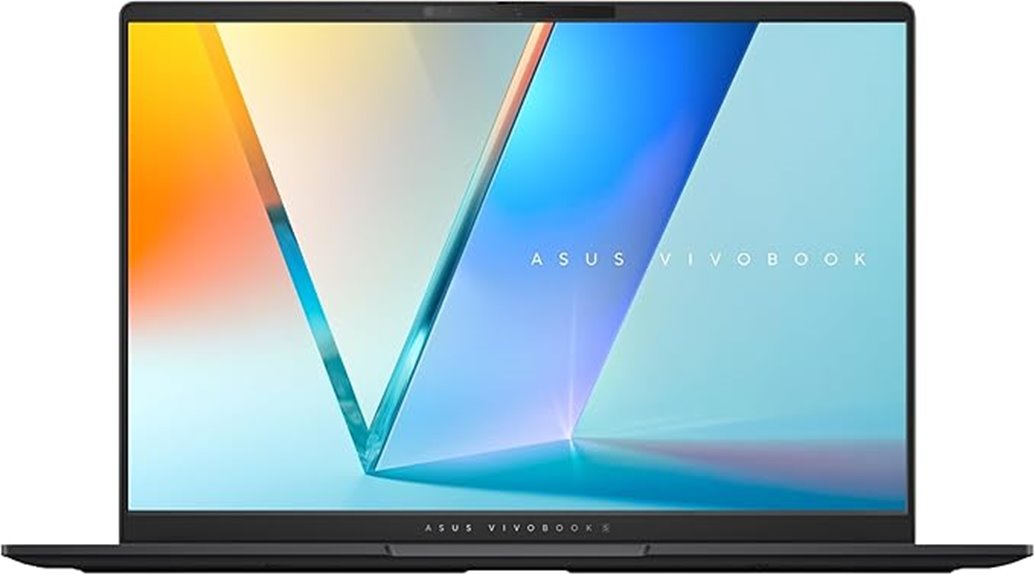Best Laptops for Telehealth (Top 5 Picks for 2025)
For seamless virtual care in telehealth, consider the Apple 2024 MacBook Pro with its powerful M4 chip and stunning 14.2-inch display. The Acer Swift X 14 offers an impressive OLED screen and robust specs for demanding tasks. The 2025 MacBook Air provides excellent battery life and a high-quality webcam. The ASUS Vivobook S 14 boasts portability and vibrant visuals, while the Samsung Galaxy Book4 Pro combines lightweight design and impressive performance. Discover more about these options to find your perfect match.
In the interest of full disclosure, we would like to inform you that some links on our website are affiliate links. By clicking on these links and completing a purchase from our partners, we may receive a nominal commission at no extra cost to you. Rest assured, our affiliate partnerships do not compromise the integrity of our editorial content or product evaluations. For further clarification, kindly refer to our comprehensive affiliate disclosure.
Table of Contents
What Are the Best Laptops for Telehealth to Buy This Year?
Here are my top picks for the best laptops for telehealth, you can consider this year.
Apple MacBook Pro Laptop with M4 Chip (14.2-inch, 16GB RAM, 512GB SSD)
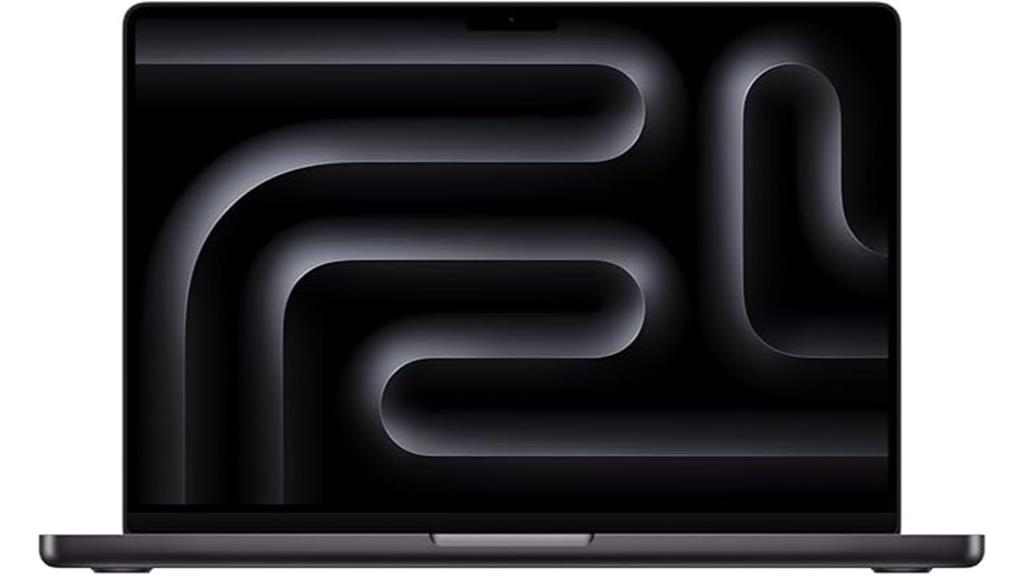
The Apple 2024 MacBook Pro with the M4 chip is an excellent choice for healthcare professionals engaged in telehealth. Its 14.2-inch Liquid Retina XDR display delivers stunning visuals with peak brightness of 1600 nits, ensuring clarity during virtual consultations. The powerful 10-core CPU and GPU, combined with 16GB of unified memory, enable seamless multitasking and smooth operation of applications like Microsoft 365 and Adobe Creative Cloud. Plus, with all-day battery life, you won’t have to worry about running out of power mid-session. Its integration with the Apple ecosystem enhances your experience, making communication and workflow effortless.
Best For: Healthcare professionals engaged in telehealth seeking a powerful and portable laptop for virtual consultations and multitasking.
Pros:
- Exceptional Display: The 14.2-inch Liquid Retina XDR display provides stunning visuals with high brightness and contrast.
- Powerful Performance: The M4 chip with a 10-core CPU and GPU ensures smooth operation for demanding applications and multitasking.
- Long Battery Life: All-day battery performance allows for extended use without the need for frequent charging.
Cons:
- Price Point: The MacBook Pro may be more expensive compared to other laptops with similar specs.
- Limited Upgrade Options: The unified memory and storage are not user-upgradable post-purchase.
- Compatibility with Non-Apple Software: Some non-Apple applications may not run as efficiently or may lack features available on other operating systems.
Acer Swift X 14 Laptop (SFX14-72G-77NJ)
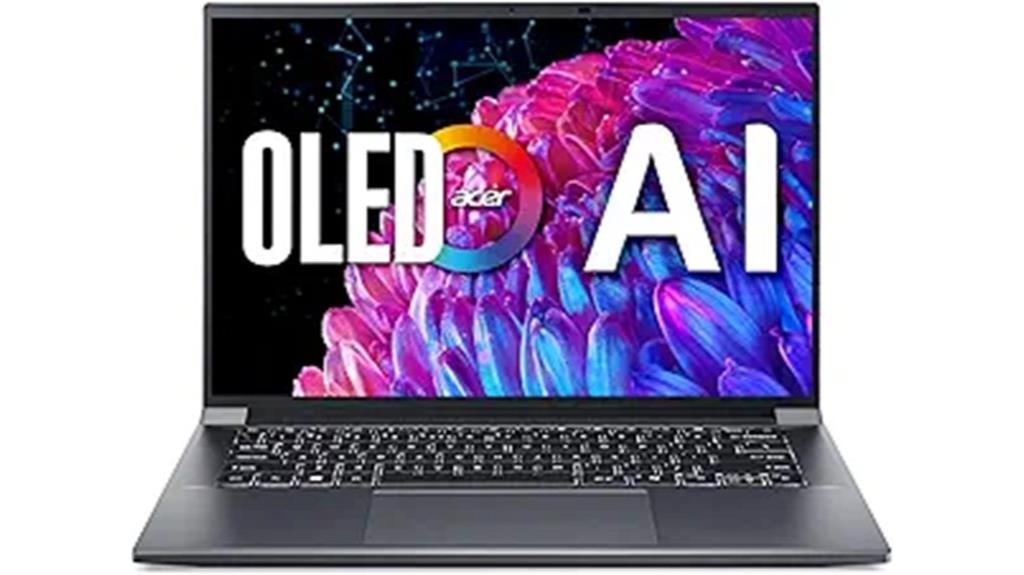
For healthcare professionals seeking a powerful yet portable solution, the Acer Swift X 14 Laptop (SFX14-72G-77NJ) stands out with its Intel Core Ultra 7 processor and NVIDIA GeForce RTX 4060 GPU. This laptop features a stunning 14.5-inch OLED display, offering vibrant colors and reduced eye strain, perfect for long telehealth sessions. With 16GB LPDDR5X memory and a 1TB PCIe SSD, multitasking becomes seamless. Additionally, the 1080p FHD webcam and AI noise reduction ensure clear communication. Plus, with advanced connectivity options, you’ll stay connected effortlessly. The Acer Swift X 14 is designed for professionals needing performance and reliability.
Best For: Healthcare professionals seeking a powerful, portable laptop for telehealth and multitasking.
Pros:
- High-performance Intel Core Ultra 7 processor and NVIDIA GeForce RTX 4060 GPU for demanding applications.
- Stunning 14.5-inch OLED display with vibrant colors and TÜV Rheinland Eyesafe certification for reduced eye strain.
- Advanced connectivity options including Killer Wi-Fi 6E and Bluetooth 5.3 for seamless online communication.
Cons:
- Limited upgrade options due to soldered memory and storage.
- Higher price point compared to entry-level laptops with similar specifications.
- Potentially heavy for users who prioritize ultra-portability over performance.
Apple 2025 MacBook Air 15-inch Laptop with M4 Chip
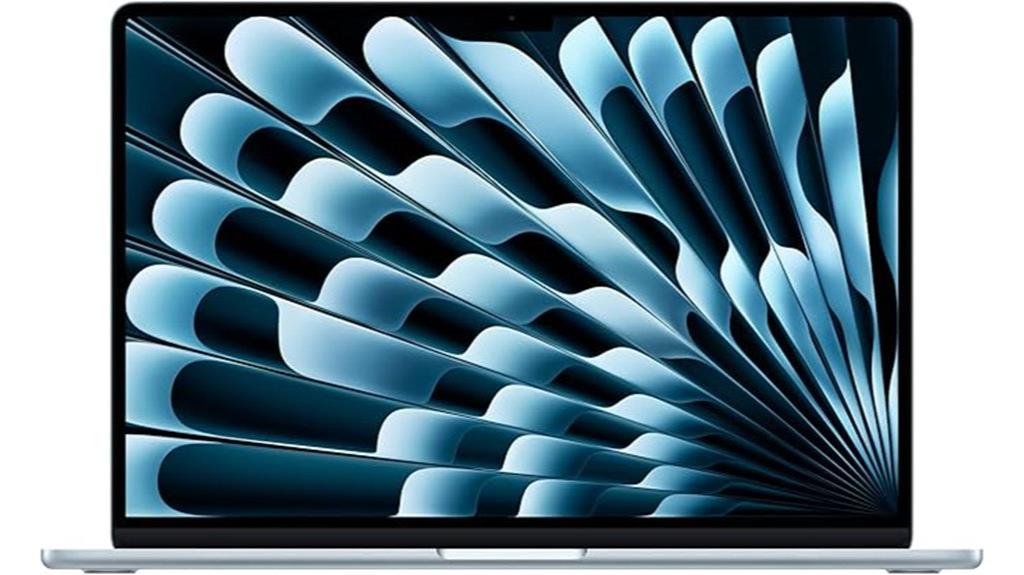
Designed with telehealth professionals in mind, the Apple 2025 MacBook Air 15-inch Laptop with M4 Chip delivers exceptional performance and portability. With its powerful M4 chip, you’ll experience seamless multitasking, whether you’re editing videos or conducting virtual consultations. The stunning 15.3-inch Liquid Retina display brings your visuals to life, showcasing rich colors and sharp details. You’ll appreciate the high-quality 12MP Center Stage camera and immersive audio from six speakers during patient interactions. Plus, with a robust battery life of up to 18 hours and advanced connectivity options, this MacBook Air is perfect for your telehealth needs.
Best For: Telehealth professionals seeking a powerful and portable laptop for seamless virtual consultations and content creation.
Pros:
- Exceptional performance with the M4 chip, allowing for fluid multitasking and efficient video editing.
- Stunning visuals on the 15.3-inch Liquid Retina display, supporting 1 billion colors for vivid and sharp images.
- Extended battery life of up to 18 hours, ensuring productivity during long work sessions without needing to recharge.
Cons:
- Limited ports with only two Thunderbolt 4 ports, which may require additional adapters for connecting multiple devices.
- Price point may be higher compared to other laptops with similar specifications, potentially making it less accessible for some users.
- Weight may be slightly heavier than ultra-portable laptops, which could affect mobility for users frequently on the go.
ASUS Vivobook S 14 OLED Slim Laptop (M5406WA-DS76)
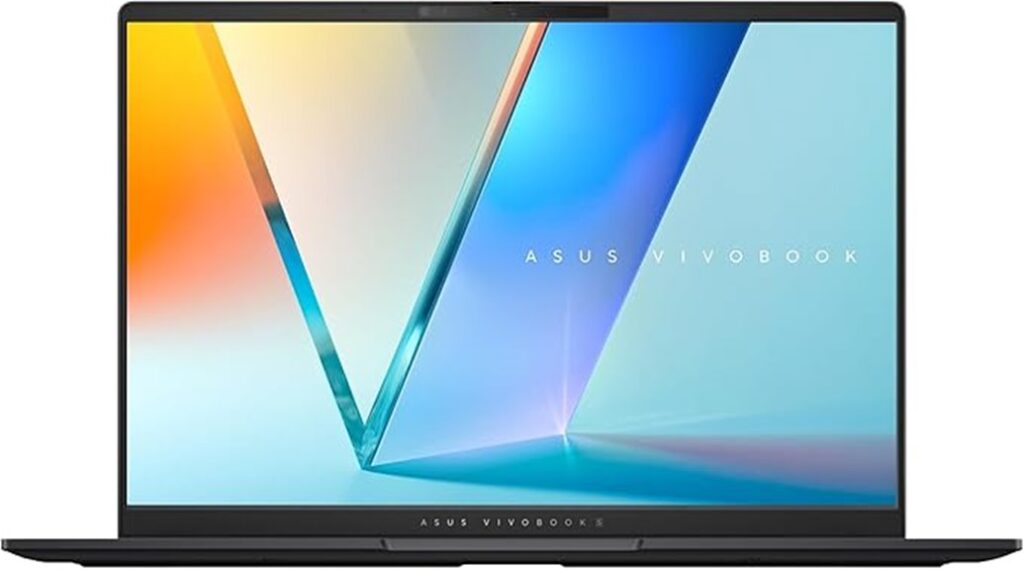
Combining powerful performance with stunning visuals, the ASUS Vivobook S 14 OLED Slim Laptop (M5406WA-DS76) is an excellent choice for telehealth professionals. Its AMD Ryzen 9 365 processor and 24GB LPDDR5X RAM ensure smooth multitasking, while the 14” 3K OLED display delivers vibrant colors and sharp details. With a slim profile of just 0.63” and weighing only 2.87 lbs, it’s easy to carry for on-the-go consultations. The customizable RGB backlit keyboard adds a personal touch, and the multiple connectivity options keep you connected. This laptop is built for seamless virtual care, making your telehealth experience efficient and enjoyable.
Best For: Telehealth professionals seeking a powerful, portable laptop for seamless virtual consultations.
Pros:
- High-performance AMD Ryzen 9 processor and 24GB RAM for smooth multitasking.
- Stunning 14” 3K OLED display with vibrant colors and sharp details.
- Lightweight design at 2.87 lbs, making it easy to transport for on-the-go use.
Cons:
- Limited storage capacity with only a 512GB SSD.
- Customizable RGB keyboard may not appeal to all users.
- Lack of a dedicated graphics card may limit performance for heavy gaming or graphic design tasks.
Samsung Galaxy Book4 Pro Business Laptop (NP944XGK-KG4US)
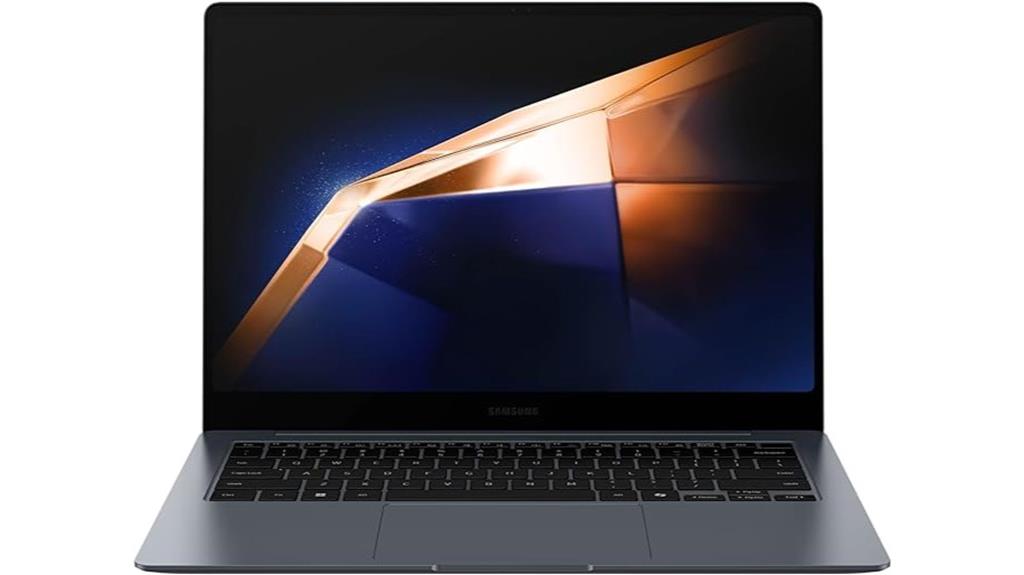
The Samsung Galaxy Book4 Pro Business Laptop (NP944XGK-KG4US) stands out as an excellent choice for telehealth professionals who demand top-notch performance and portability. Weighing just 2.71 lbs, its slim design makes it easy to carry around. The stunning 14-inch 3K AMOLED touchscreen offers crystal-clear visuals, perfect for video conferencing. Powered by the Intel Core Ultra 7 processor and 32GB of RAM, multitasking is seamless. With 1TB of SSD storage, you’ll have ample space for your files. Plus, integrated security features like Samsung Knox ensure your data stays protected while you work.
Best For: Telehealth professionals seeking a powerful, portable laptop with high-quality visuals and robust security features.
Pros:
- Lightweight and slim design makes it highly portable for professionals on the go.
- Exceptional 3K AMOLED touchscreen provides vibrant visuals ideal for video conferencing.
- Strong performance with Intel Core Ultra 7 processor and 32GB RAM allows for seamless multitasking.
Cons:
- Higher retail price compared to competitors with similar specifications.
- Limited RAM upgrade options in certain regions, capped at 16GB.
- Perceived low quality of the OEM SSD from Western Digital for the price point.
Factors to Consider When Choosing the Best Laptops for Telehealth
When choosing a laptop for telehealth, you need to consider several key factors to ensure a smooth experience. Performance and processing power are crucial, as you’ll want a device that can handle video calls and software applications easily. Don’t forget about display quality, webcam and audio capabilities, battery life, and connectivity options—these elements all play a significant role in your telehealth setup.
Performance and Processing Power
To ensure seamless telehealth consultations, you’ll want to prioritize performance and processing power when selecting a laptop. Aim for at least 16GB of RAM to handle multiple applications smoothly. The processor plays a vital role; consider laptops with advanced options like Intel Core Ultra or Apple M-series chips for speed and efficiency, especially during video calls and data management. Don’t overlook graphics capabilities—integrated GPUs or dedicated graphics cards can enhance video stream quality. Battery life is also crucial; look for laptops that offer at least 8 hours to keep you productive without constant recharging. Lastly, software optimized for AI and productivity tasks can make accessing patient information quicker and more efficient during your interactions.
Display Quality and Size
Choosing the right display quality and size is essential for effective telehealth consultations, as a clear and spacious screen can enhance your interactions with patients. Aim for a display resolution of at least 1920 x 1080 pixels (Full HD) to ensure crisp visuals that won’t strain your eyes. Larger screens, ideally 14 inches or more, allow you to view medical documentation, charts, and patient information simultaneously during video calls. Look for high brightness levels above 300 nits for visibility in various lighting conditions. Color accuracy is crucial, so consider models with 100% sRGB coverage to represent medical images accurately. Features like anti-glare coatings and touch capabilities can also improve your experience during virtual sessions.
Webcam and Audio Quality
A high-quality webcam and audio system are just as important as display quality for effective telehealth consultations. Look for laptops with webcams that offer at least 1080p resolution, ensuring clear video calls that capture facial expressions for better communication. Advanced audio features, like multiple microphones with noise reduction, help enhance sound clarity, making it easier for both you and your healthcare provider to hear each other. Consider laptops with Center Stage technology, which keeps the subject in focus during virtual appointments. Additionally, AI-driven audio enhancements can improve voice quality by minimizing background noise. For the best telehealth experience, choose a laptop that combines high-definition video and clear audio capabilities to maintain patient engagement and ensure effective consultations.
Battery Life Considerations
In telehealth, battery life plays a crucial role in maintaining seamless consultations. You’ll want a laptop with at least 8 hours of battery life to avoid interruptions during your sessions. Consider models that feature fast charging capabilities; this way, you can quickly recharge during short breaks between appointments. The efficiency of the processor also impacts battery longevity, so choose devices optimized for low power consumption. Keep in mind that high-resolution displays can drain the battery faster, so balance display quality with battery life. Lastly, opt for laptops designed for multitasking, as they help maintain consistent connectivity and functionality throughout extended telehealth sessions. Prioritizing these features will enhance your virtual care experience.
Connectivity Options Available
Battery life isn’t the only factor to keep in mind when selecting a laptop for telehealth; connectivity options also play a significant role in ensuring a smooth experience. Look for laptops with multiple USB ports, HDMI, and Thunderbolt connections to easily link various peripherals and external displays. Opting for a laptop with Wi-Fi 6E or higher will provide faster, more reliable internet, essential for uninterrupted video calls. A microSD card reader can simplify accessing additional storage and transferring patient records. Plus, choose laptops supporting Bluetooth 5.3 or higher for seamless wireless connections with devices like headphones and medical peripherals. Don’t forget a built-in webcam and microphone with AI noise reduction for clear audio and video during consultations.
Portability and Weight
When you’re on the go, portability becomes essential for telehealth professionals who need to conduct consultations from various locations. Opt for lightweight laptops, ideally under 3 lbs, to ease transport. A slim profile, around 0.6 inches thick or less, helps you fit your device into bags without unnecessary bulk. Battery life is also crucial; look for models that offer at least 8 to 18 hours on a single charge, ensuring you can conduct extended consultations without hunting for an outlet. Choose laptops made from sturdy yet lightweight materials like aluminum or magnesium alloy for durability. Lastly, a compact design with a 14-inch display or smaller strikes a balance between portability and sufficient screen space for video calls.
Operating System Compatibility
Finding the right laptop for telehealth goes beyond just portability; operating system compatibility plays a key role in ensuring smooth virtual consultations. Many telehealth platforms are optimized for specific systems like Windows or macOS, affecting performance and features. Choosing a laptop that supports the software you plan to use is crucial for a seamless experience. Additionally, security protocols and updates can vary, so pick an OS that receives regular patches. Don’t forget about peripheral compatibility; webcams and microphones may have driver availability issues depending on your OS, impacting communication clarity. Finally, consider your familiarity with the operating system, as it can significantly influence your efficiency and comfort during telehealth sessions.
Security and Privacy Features
As you navigate the selection of a laptop for telehealth, prioritizing security and privacy features is essential to protect sensitive patient information. Look for laptops equipped with built-in security measures like Secured Core PC and proprietary data protection systems. Ensure robust privacy protections, including encryption and secure boot processes, to prevent unauthorized access to personal health data. Strong user authentication methods, such as biometric options like fingerprint readers or facial recognition, can enhance your security during login. Also, verify compliance with healthcare regulations like HIPAA, which require specific security measures for handling patient data. Finally, consider laptops that deliver regular firmware and software updates to address vulnerabilities and maintain the integrity of security features over time.
Frequently Asked Questions
What Is the Ideal Battery Life for Telehealth Laptops?
For telehealth laptops, you’ll want at least 8 to 10 hours of battery life. This ensures you can conduct virtual consultations without interruption, allowing you to focus on patient care without worrying about charging frequently.
Are Touchscreens Beneficial for Telehealth Use?
Touchscreens can be beneficial for telehealth use, making navigation easier and allowing for more interactive consultations. You’ll find that tapping, swiping, and drawing on the screen enhances your communication with patients during virtual appointments.
How Important Is Webcam Quality for Virtual Consultations?
Webcam quality’s crucial for virtual consultations. You want clear, professional images to establish trust with patients. A high-resolution webcam enhances communication, ensuring you can see facial expressions and details, making your interactions more effective.
Can I Use a Laptop for Telehealth Without High-Speed Internet?
You can use a laptop for telehealth, but a stable internet connection is crucial. Without high-speed internet, you may experience lag, poor video quality, and disrupted communication, making consultations less effective and frustrating for both parties.
What Accessories Enhance Telehealth Experience on Laptops?
To enhance your telehealth experience on laptops, consider using a good quality webcam, noise-canceling headphones, and a reliable microphone. These accessories improve audio and video quality, making virtual consultations clearer and more professional.
My Final Opinion
In conclusion, selecting the right laptop for telehealth can make a significant difference in your virtual care experience. Whether you prioritize performance, portability, or display quality, options like the Apple MacBook Pro and Acer Swift X cater to diverse needs. By considering factors like processing power, battery life, and connectivity, you’ll find a device that enhances your telehealth sessions. With the right laptop, you can focus on providing top-notch care without technical interruptions.
